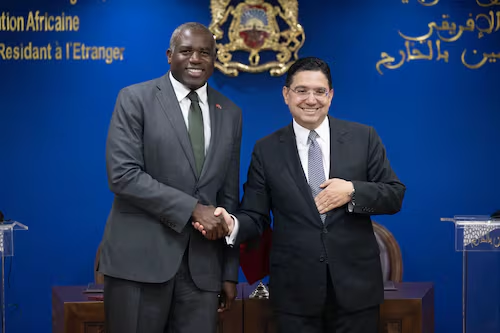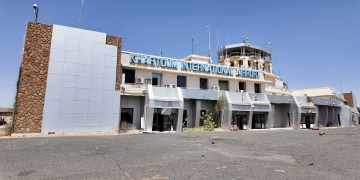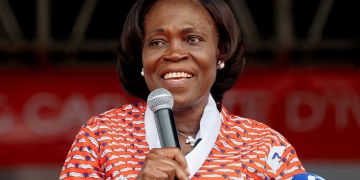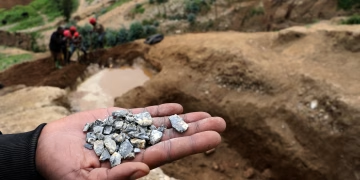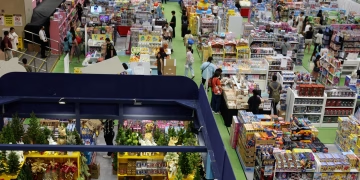In a significant shift in the decades-long Western Sahara conflict, the Polisario Front, which represents the Sahrawi people, has shown conditional willingness to accept Morocco’s 2007 autonomy proposal. This move, however, comes with a crucial stipulation: the plan must be validated by the Sahrawi population through a referendum that includes independence as a voting option. Analysts say this development could open a potential breakthrough in resolving the long-standing territorial dispute.
Background of the Western Sahara Conflict
Western Sahara, a resource-rich region in North Africa, has been disputed since Spain withdrew from colonial rule in 1975. After Spain left, Morocco annexed the territory. This annexation has been consistently challenged by the Polisario Front. The movement seeks the establishment of the Sahrawi Arab Democratic Republic (SADR) and full independence for the region.
Since 1991, the United Nations (UN) has attempted to mediate the conflict. It established the United Nations Mission for the Referendum in Western Sahara (MINURSO) to oversee a planned referendum on self-determination. Yet, the referendum has never taken place. The lack of resolution has left the conflict unresolved for more than four decades.
Morocco’s Autonomy Plan
In 2007, Morocco proposed an autonomy plan as a solution to the dispute. The plan offered Western Sahara significant self-governance while keeping the territory under Moroccan sovereignty. According to the plan, the Sahrawi people would manage local affairs such as education, healthcare, and economic development. Meanwhile, Morocco would maintain control over defense, security, and foreign policy.
Morocco insists the autonomy plan provides a final and irreversible solution. The country emphasizes that the plan is the only viable way to secure stability and development in the region. Several countries, including the United States, France, and Spain, have publicly supported Morocco’s initiative. They describe it as realistic and pragmatic.
Despite these endorsements, the Polisario Front and Algeria, which backs the independence movement, reject the plan. They argue that it undermines the Sahrawi people’s right to self-determination. According to them, any solution must allow the Sahrawis to decide their future freely, including the choice of full independence.
Polisario Front’s Conditional Acceptance
Recently, Mohamed Yeslem Beissat, chief diplomat of the Polisario Front, indicated that the movement might accept Morocco’s autonomy plan if it undergoes a referendum including independence as an option. Beissat stressed that discussing the plan outside the referendum framework is unacceptable.
The Polisario Front has submitted an “expanded proposal” to the United Nations. This proposal includes three options for the Sahrawi people: independence, integration with Morocco, or a pact of free association similar to Morocco’s plan. Analysts note that this marks a notable shift from the Front’s previous stance, which rejected any solution short of independence.
The move has been described as cautious but pragmatic. It suggests the Polisario Front is willing to explore avenues for peace without abandoning its core demand for self-determination.
International Reactions
The international community has reacted in mixed ways. Belgium recently added its support for Morocco’s autonomy plan, calling it the most viable solution to the Western Sahara dispute. Other supporters include the United States, France, the United Kingdom, Spain, Germany, and Portugal. These endorsements signal a shift in international opinion. Many countries now view the autonomy plan as a pragmatic way to end a conflict that has lasted decades.
However, Algeria and the Polisario Front condemned these endorsements. They continue to insist that a referendum including independence is necessary. The United Nations has maintained a neutral stance. While the UN advocates for a political solution that respects Sahrawi rights, it has not formally endorsed any plan. The UN describes the conflict as low-intensity but warns that a sustainable resolution is needed to prevent escalation.
Challenges to Holding a Referendum
Despite the Polisario Front’s conditional acceptance, significant obstacles remain. Morocco has consistently rejected a referendum that includes independence, citing a threat to its territorial integrity. Furthermore, organizing a vote in a region with divided control and a large diaspora population presents logistical difficulties.
The referendum would need to reach Sahrawi people living inside and outside the territory. Ensuring fair and transparent participation would require extensive coordination. Security arrangements, voter verification, and ballot distribution are complex tasks. These hurdles make it unlikely that a referendum could occur quickly.
The United Nations continues to call for peaceful negotiations. It emphasizes dialogue and compromise among all parties. Observers suggest that the Polisario Front’s shift may provide a starting point for talks. However, reaching a mutually acceptable solution will require significant concessions from both Morocco and the Polisario Front.
Regional Implications
The Western Sahara conflict has broader implications for North Africa and the Sahel region. Algeria’s backing of the Polisario Front has fueled tensions with Morocco. A failure to resolve the conflict could affect regional stability, trade, and security. Additionally, the Sahrawi refugee population in Algeria remains a humanitarian concern, with thousands living in camps under challenging conditions.
A negotiated settlement could ease regional tensions. It may open opportunities for economic cooperation and development projects in Western Sahara. Analysts also note that a peaceful solution could serve as a model for resolving other protracted territorial disputes in Africa.
Future Prospects
The Polisario Front’s statement may signal a willingness to compromise, but it is only a first step. Diplomatic efforts must continue, including engagement with the United Nations, Morocco, Algeria, and other international stakeholders. Confidence-building measures, monitoring mechanisms, and guarantees for Sahrawi rights will be crucial.
Experts suggest that an incremental approach may be more feasible than a single, comprehensive solution. Interim arrangements, such as expanded autonomy with international oversight, could create conditions for a future referendum. Ensuring that Sahrawi voices are heard throughout the process is essential for legitimacy.
Conclusion
The Polisario Front’s conditional openness to Morocco’s autonomy plan represents a significant development in the Western Sahara conflict. By insisting on a referendum that includes independence, the Front reinforces its core demand for self-determination.
While this offers hope for progress, numerous challenges remain. Morocco’s opposition to independence, logistical hurdles for a referendum, and regional tensions complicate the path forward. International mediation and sustained dialogue will be necessary to navigate these challenges.
Ultimately, a lasting solution will require compromise, mutual trust, and adherence to international law. The goal is to achieve a just and peaceful resolution for the Sahrawi people. If successful, this could end decades of uncertainty and pave the way for political stability, economic development, and regional cooperation in North Africa.


